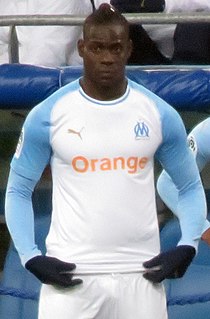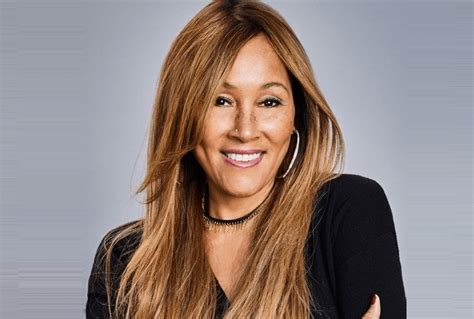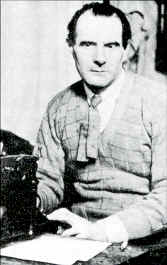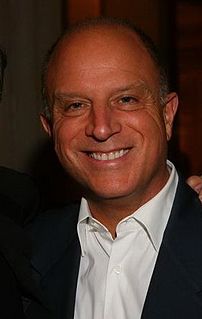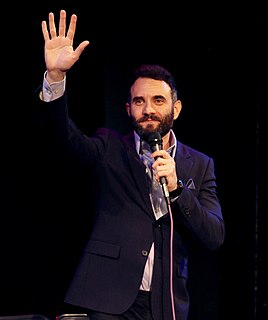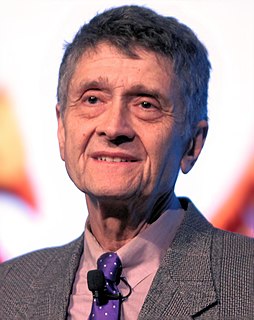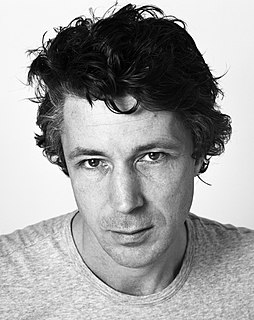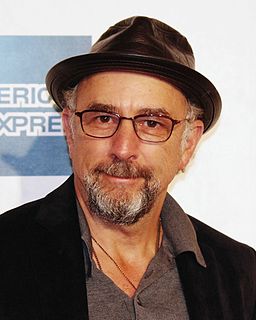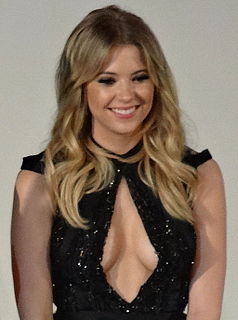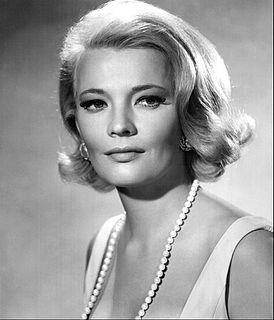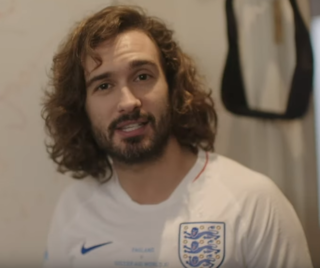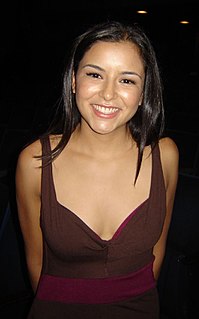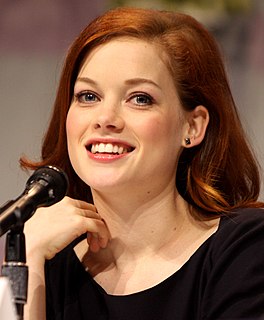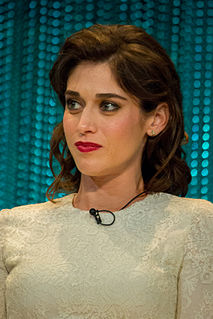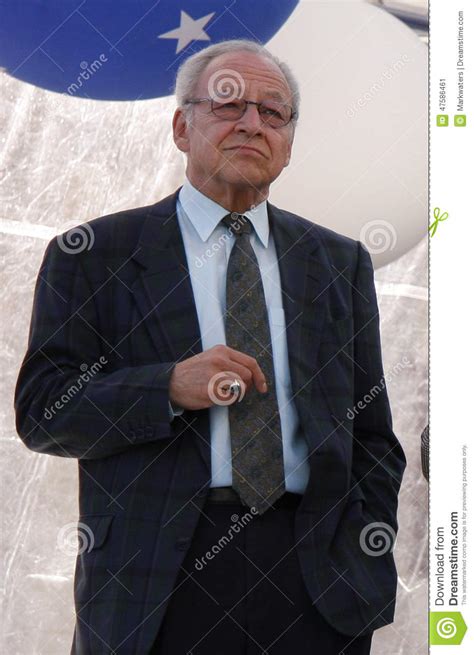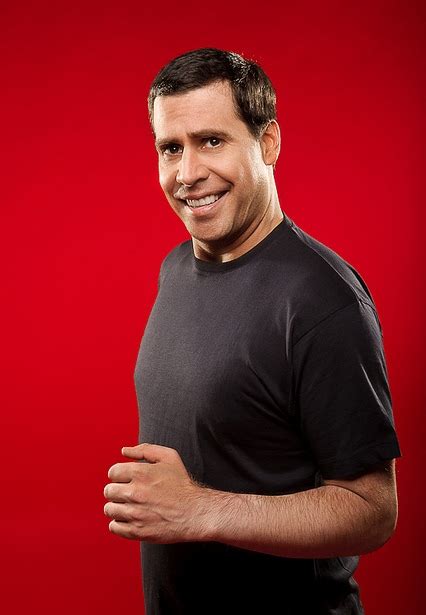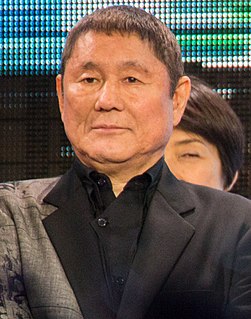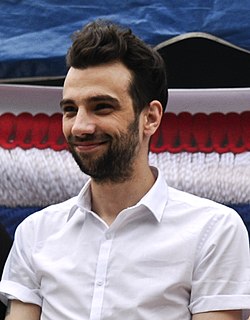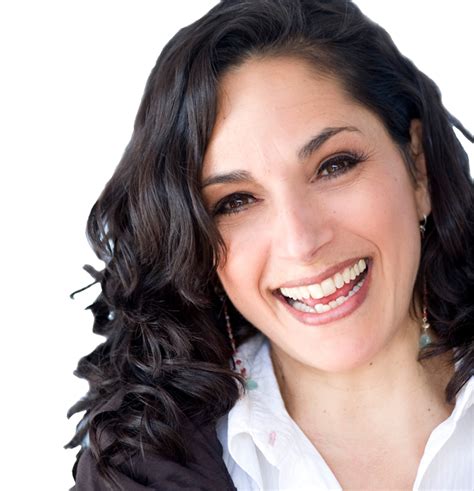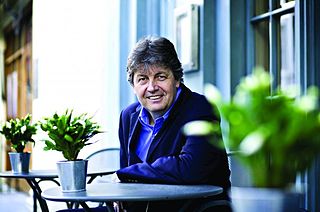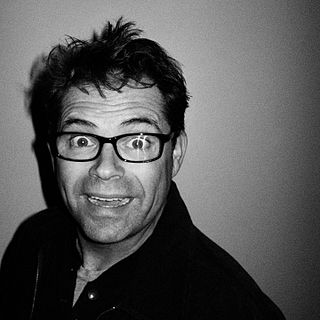Top 1200 Daytime Tv Quotes & Sayings - Page 15
Explore popular Daytime Tv quotes.
Last updated on December 19, 2024.
As TV embedded itself into the national consciousness, it got us to remember how more than just the facts transmits truth and reality - and in fun, engaging ways. TV also showed us how telling our stories, confronting our own truths makes us and the people with whom we're sharing feel less lonely and alienated.
This is really funny, but we did a study of the occupations of female characters on TV, and there are so many female forensic scientists on TV because of all the CSI shows and Bones and whatever. I don't have to lobby anybody to add more female forensic scientists as role models. There's plenty.In real life, the people going into that field now are something like two-thirds women.
I dream that one day I can really combine where I came from on network TV, with where I am, and not have to be told by a secular network president again that Jesus won't work on network TV, when I know thats not true. People need the message of love and hope that Jesus represents. He's not divisive. People are. Love is the greatest unifier and Jesus is love.
I walk into office, which is the casting office for CBS in New York. Mainly what they cast out of this office was the CBS daytime shows. I go in and walk into this room which every seat is filled with young African-American boys and girls and they were in their teens. I went, "I'm in the wrong place. Why am I here? What's going on?"So I go in and meet Norman [Lear].
People love that kind of beginning, middle, and end. They like that comfort of turning on the TV week-to-week and being entertained with a good story. There's nothing wrong with TV franchises because, first of all, they're successful. They just make people feel good and hopefully make people think about other people.
I had no money. I had no savings account.So I would bring down my color TV set, a Sears TV with a cable snaked into it - they had no video-in back in those days - and hooked it up to the circuit of very few chips and then a little keyboard you could type on. And I was trying to impress people with how did he do it with fewer chips than anyone could ever imagine?
The wide wonder of Broadway is disconsolate in the daytime; but gaudily glorious at night, with a milling crowd filling sidewalk and roadway, silent, going up, going down, between upstanding banks of brilliant lights, each building braided and embossed with glowing, many-coloured bulbs of man-rayed luminance. A glowing valley of the shadow of life. The strolling crowd went slowly by through the kinematically divine thoroughfare of New York.
Producing and distributing premium TV entertainment content is more 'global' now than at any point in the history of the business. World Screen does an excellent job in following the news, trends and key players. It's a must-read for those in the business of global TV and brings us that much closer to prospective buyers and distributors of our premium content.
Video store arguments really bother me. Let's say it's a slow night on campus so you decide to stay in and rent a movie. You're in the video store and finally pick one out and your friend says, 'Oh, don't get that, it was on TV last week.' I hate when people say that. Who cares? Is it on TV right now? No? Good, then let's rent it.
I just feel like TV takes more risks than film. Film has gotten very safe: it's very compartmentalized about what type of things will be successful. And whereas in TV, since all these new platforms opened, they're saying to writers, go out there, write the most different show that you can write. Write something that's really original and different.
Unfortunately our children today seem to spend less and less time with their overworked parents, and so they draw more information about the world from the images on movie and TV screens. The true power of the media is the ability to redefine reality, to alter our expectations about what constitutes normal life. TV and the movies have abused that power by advancing the notion that wholesome, ordinary happiness is impossible.
Southern food that appears in contemporary popular culture is so exaggerated that it's hardly recognizable to most Southerners. This enriching of Southern food - fatter, richer, more over the top - is what we typically see on TV, in Hollywood films, and in Southern-style or country-themed chains like Cracker Barrel. Southern food becomes a caricature, like characters and props in a reality TV show.
So-called reality TV, which dominates British channels, is destroying what made it cherishable to me and lots of others in the first place. I loved Alan Clarke, Ken Loach and Alan Bleasdale's work. In fact the first TV dramas I ever saw were 'Screen Twos' produced by David Thompson, who also produced a lot of Alan Clarke.
I really don't watch enough TV to know about the impact. In my experience as a TV writer, I would say is the exact opposite - it's very constricted, all having to conform to a form. My sense of fiction writing is not to think about rules but to be driven by the characters and their stories. I often ask myself what's at risk here, who needs what, and how are they going to get it. There has to be a reason for the reader to stop living their own life and start reading your book.
Oh wow, you know what's wrong with all these families on TV? All these kids say stuff no kid would say. Stuff grown-ups want them to say. Man, I'd make a really realistic family. Where kids get spankings. On TV parents say, 'Oh, you shouldn't do that ever again. Now you can have ice cream.' Forget it.
Playing a TV character for seven years is almost like when you do a play. You live, breathe, and everything else with that character 24-7 for six months or four months or whatever, and that gets very deep in your blood. When you do a TV character for seven years, that's a long time. It becomes a seminal era in your life.
My first celeb crush was Hanson. I loved all three of them. My sister and I would always fight, and whenever they would come on the TV, we would always give them a kiss on the TV. And I also had a crush on Jonathan Taylor Thomas. Every time he would come on the screen, he was like my boyfriend. I was such a nerd like that.
I don't actually have cable. I watch TV, but only shows that I buy on DVD. As a result my TV rage factor is pretty low right now. I do have a real distaste for those extreme makeover shows. I once caught a roommate watching one and proceeded to rant for almost 15 solid minutes about how, in watching that bullshit, she was actively contributing to the destruction of all civilization.
Because John Cassavetes was so terrific in live TV, a lot of his friends had not been able to participate in that yet and so they asked if he would gather with them at night when I was at the play and tell them what live TV was like, what you had to adjust to because it was its own medium - it had many things you had to be aware of.
If I wanted to do TV full-time, 'Breaking Bad' is definitely the type of project I would want to do. But TV is not my favorite thing in the world. I definitely want to focus on film. It's what I grew up loving. It's always been about movies, movies, movies, movies, movies. I really want to make great films.
While the TV show 'Rizzoli & Isles' may have been inspired by my books, show runner Janet Tamaro has total control over where the TV characters go from there. As Janet once put it, I'm the birth mother, but she's the mother who adopted them, and now that Jane and Maura are living in her house, they have to do what she tells them to do.
It started so early, it all runs together. But what made a huge impact on me was when I went to Europe at 15 or 16 years old. All I knew before that was music on the radio and TV. When I went over there I realized there are all different levels of music. There are people who do blues, jazz, classical, working in film, TV and all kinds of places. You might not see them on MTV but there are lots of needs and uses and opportunities for all kinds of music.
It is so easy to be hopeful in the daytime when you can see the things you wish on. But it was night, it stayed night. Night was striding across nothingness with the whole round world in his hands . . . They sat in company with the others in other shanties, their eyes straining against cruel walls and their souls asking if He meant to measure their puny might against His. They seemed to be staring at the dark, but their eyes were watching God.
It's a different thing with cable TV. You don't have to have your characters be lovely again by the end of the episode. And in this era of the male antiheroes on cable TV, you don't even need to make them likable; you just need to make them compelling. As opposed to film, where it's still those basic tropes of good versus evil. But for women, I don't think that has been widely seen yet.
In those same decades, most UFO sightings were made in the daytime and frequently at close range, when shapes and surface features could be distinguished, thus making positive identification of normal sights easier and the descriptions of unusual sights more detailed. When all normal explanations had been eliminated, the witnesses could concentrate on those aspects of the experience which were most abnormal.
In the isolation of his clear, cold intellect, the sceptic abides in a glacial and spectral universe. No glow from the affections lights up the frost and shadow of the grave. He feels no prophecy in the thrill of the human heart-in the incompleteness of nature. He believes merely in things tangible, and sees only in the daytime. He will not confess the authenticity of that paler light of faith which was meant to shine when the sunshine of reason falls short, and the firmament of mystery is over our heads.
Microsoft first entered the living room with Ultimate TV way back in 2000 - a year before Apple's first iPod was announced. Ultimate TV offered consumers a DVR and supporting online services, including 14 days of programming and the ability to record 35 hours of programming. Microsoft's reach was then thwarted when Echostar acquired DIRECTV.
I would rather sit next to a transgender person and discuss why every single one I've met smells like a bar in the daytime than listen to people tell my why I want to have children and that I just don't know it yet. I do know, because I'm me and my feelings are the ones in my head. I don't want to have kids, and it's not a device to get attention or have conversations about it. I simply find children incredibly immature and, more often than not, dumb.
Every single television product has the ambition to chase ratings, every one of them. Many have other ambitions, for many, ratings are not #1. But my experience on TV, and on the entertainment side, has been entirely ratings-based. When I look at TV I look at ratings. And I never second guess ratings. Never.
I got a part opposite Edward G. Robinson in a play called Middle of The Night, which Paddy Cheyafsky had written. It played for a long time because everybody just loved Edward G. Robinson, everybody in New York wanted to see it. John and I were married at the time and put into a position where I was working very long evening hours and he was working in the daytime and so there was a lot of spare time.
The big difference I think between tv and stage is definitely the immediate buzz that you get. And that's not just as an actor, as an audience member you're getting the chance to have this kind of two-way process where the actors and the audience are experiencing the same thing. With tv you often have to wait months and months down the line to actually get the pay-off. Whereas with theatre it's a very immediate thing.
The first thing I say when people ask what's the difference [between doing TV and film], is that film has an ending and TV doesn't. When I write a film, all I think about is where the thing ends and how to get the audience there. And in television, it can't end. You need the audience to return the next week. It kind of shifts the drive of the story. But I find that more as a writer than as a director.
With TV season structures - and I'm a huge TV watcher - you look at shows like 'Breaking Bad,' which is my favorite show of all time, and 'The Sopranos,' which is pretty high up there as well, and there was that thing where, every season, Walter White would go up a level, but there would be a new bad.
Doing TV shows helps me a lot in my screenplay writing and filmmaking, especially since my TV shows are in different formats: comedy sketches, talk shows, debate programs, art variety shows, quiz shows. These enable me to meet interesting people with interesting stories and to learn about interesting subjects, all of which I can reflect into film.
Ariana Grande was on a TV show, and then she started her career singing. If I'm offered a TV show, I'm going to pursue that and then see if I can push my singing. And then if I push my singing, awesome. My biggest goal, though? Be an actress in movies. I would love to have a career like Meryl Streep's someday.
Awakening is waking up from the daytime dream and realizing that who you thought you were is not limited to thought, emotion or form. Beyond the imaginary seeker, beyond concepts and beliefs, there is a field of innocence and purity. We are this deep peace and sacredness, which is absolute and beyond all intellectual understanding. I invite you to recognize this Essence of Being and to directly realize the illusion of all psychological suffering due to misidentification, misperception of separation and attachment to conditioned thought.
Television always carried me: be it at my beginnings in small series and telefilms, or through my success in Kasamh Se and Bade Acche Lagte Hain. Thanks to TV, I saw an incredible dream come true: I could incarnate good and bad people, share my joys and pains with the audience, but also be part of this incredible medium that can educate and entertain at the same time! And with new TV platforms, the journey has only just started.
I think TV is a medium where you can be entertained, you can be informed, you can relax and you can escape whenever you want. There's no other media, exception for fictional books, where you can do that. But additional to books you also have the picture, it's not only the text and that's the reason why, in terms of getting to the heart of the people, getting to the emotions of people, TV is the ideal media to get them. There is no other media who can do that.
If you're watching a film on your television, is it no longer a film because you're not watching it in a theatre? If you watch a TV show on your iPad, is it no longer a TV show? The device and the length are irrelevant; the labels are useless, except perhaps to agents and managers and lawyers, who use these labels to conduct business deals.
These abnormal aspects included the shapes of UFOs and their behavior. Most of the UFOs seen in the daytime were said to have had simple geometric shapes-discs, ovals, spheres, cylinders-and surfaces that looked like metal. Such shapes are not only nonexistent among known aircraft, but contrary to all known theories of flight, in most cases offering control and performance disadvantages rather than advantages.
The cost of campaigning has skyrocketed in recent years because of the falloff in TV viewership. With only one-third as many people watching TV as did 20 years ago, politicians have responded by buying three times as many ads, driving the cost of campaigning to levels which only favored candidates can afford.
Watching violence in movies or in TV programs stimulates the spectators to imitate what they see much more than if seen live or on TV news. In movies, violence is filmed with perfect illumination, spectacular scenery, and in slow motion, making it even romantic. However, in the news, the public has a much better perception of how horrible violence can be, and it is used with objectives that do not exist in the movies.
I was watching Batman, the TV show, on TV Land, on the cable. And Robin said to Batman, Golly, Batman! Why is the Joker so evil!? And Batman said, Careful, Robin. The criminal mind sees the world through a prism the solid citizen dare not peer through. Batman has a more nuanced worldview than the president.
Can we find nothing good to say about TV? Well, yes, it brings scattered solitaries into a sort of communion. TV allows your isolated American to think that he participates in the life of the entire country. It does not actually place him in a community, but his heart is warmed with the suggestion (on the whole false) that there is a community somewhere in the vicinity and that his atomized consciousness will be drawn back toward the whole.
